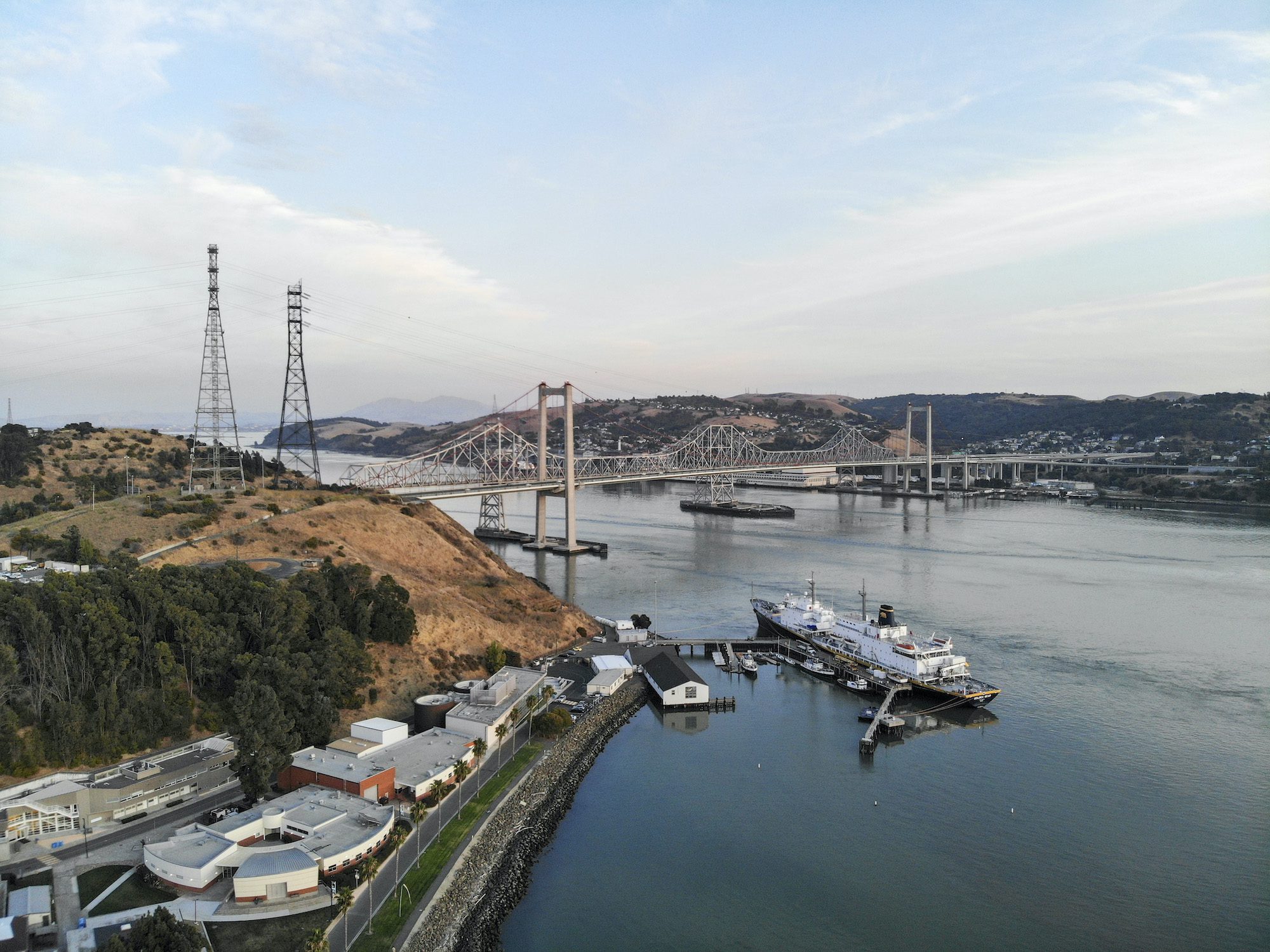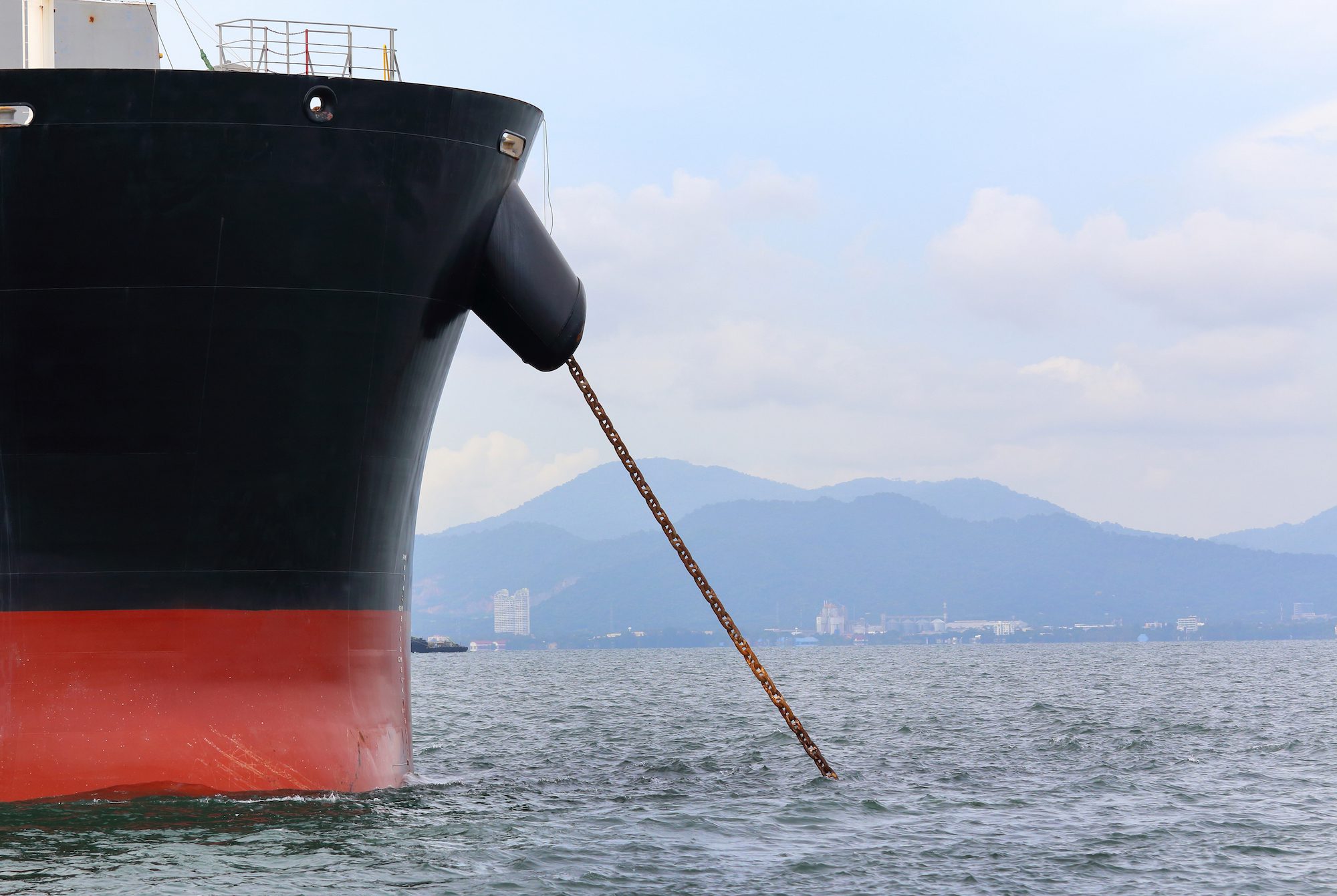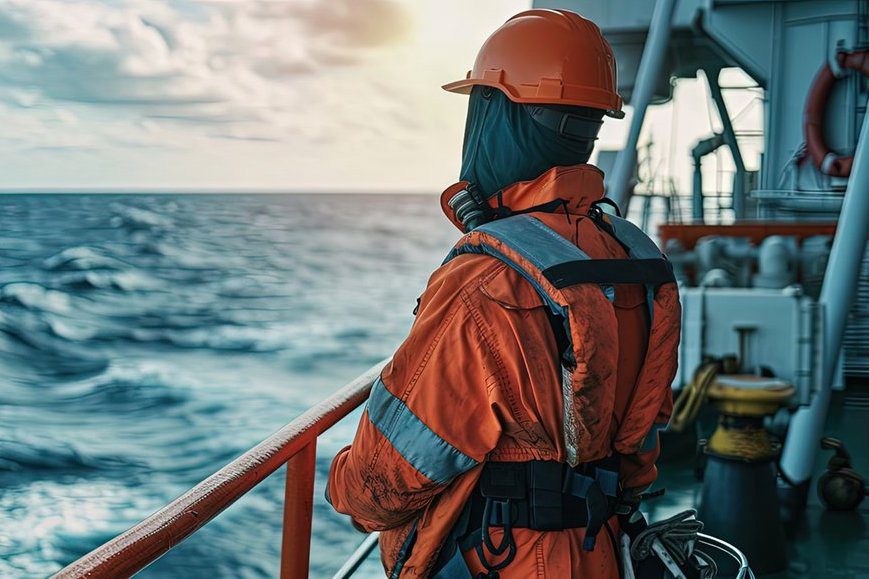While the site has ignited a number of public controversies and administrative backpedaling, the school’s admin says the new uniform and grooming standards will remain in place for remainder of the year
By David S. Lewis
A California State University Maritime Academy senior cadet, frustrated with the school’s recently adopted uniform and grooming policies, created a website for students to share their concerns with administration responses, igniting a firestorm that culminated in the suspension of one of the school’s commandants. Now the academy has decided to review the uniform policies but to retain the problematic standards for the remainder of the school year.
Senior cadet Sophie Scopazzi, believes the standards adopted for the 2021-2022 academic year are dangerous and discriminatory to non-binary and transgender students, forcing them to “out” themselves to school officials to receive permission to dress in the uniforms of their chosen genders; she also believes they are in violation of the academy’s parent organization, the California State University system, which prohibit discrimination of any kind.
Now she’s taking her fight to a new level, speaking with area and national media in an attempt to convince the school to change a culture she calls “all talk and no action.”
Student website creates firestorm
Scopazzi, who is on the school’s gender equity committee, built the website www.csumstudentvoice.org for students to anonymously document their experiences with discrimination and harassment on campus. Soon the site was flooded with a variety of damning entries, from screenshots with explicit racial and sexual harassment and abuse from fellow cadets, including text exchanges in which student leaders suggest transgender students should be sent to a “kinetic war in China” to be used as “cannon fodder” and refers to transgender and gay students as “trannies” and “f*gs” to be sent to Afghanistan.
These are in addition to narrative stories of abuse and assault, and communications to and from an administration which seems unwilling or unable to effectively deal with student concerns.
“When I created the CSUM Student Voice website I was hopeful, but honestly did not expect to receive as many submissions as I have received and continue to get,” she wrote in an email interview. “Many current and former students have written into the site, but they and others have also reached out to me personally offering support, thoughts, or just to thank me.”
She said the purpose of the site is to create a public space where students’ stories can be told.
“I think people are thankful there is a place to share their story, even anonymously, specific to Cal Maritime. Sharing one’s story helps the gradual process of healing – at least it has with me – so in the end I just feel so fortunate to be able to help share people’s voices and stories.”
The site has also received veiled threats from students who don’t wish to see the reforms for which Scopazzi and others are advocating. “Dissenting opinions” are also submitted to and posted on the site, including insulting and insensitive messages from fellow cadets, one of which compares transgender individuals to “castrated dogs.” Leaked text messages have also revealed several posts to be “spam” entries from cadets posing as non-binary but opposed to the reforms.
Scopazzi has been working with the administration to draft more gender-neutral grooming policies designed not to discriminate against trans and non-binary students since 2019. This year she learned that the rules drafted by her and the Gender Equity Committee and faculty advisors submitted had been accepted and approved by the rules board; however, those were later nixed by CSUM’s president, Rear Adm. Thomas Cropper (ret.).
Scopazzi says the new rules were not only discriminatory but dangerous, requiring trans or non-binary students to report to the administrative staff to get “permission” to dress according to their chosen gender, effectively requiring them to “out” themselves to the administration.
She feels that the school’s attempts to play lip service to her safety and situation have not only not helped her but actively called attention to her, and that the stories shared to the site have actually diminished her expectation of safety as she goes about her life on campus.
“One of the reasons it made me feel unsafe, especially once I put my name on it, was veiled threats very early on submitted to the person behind the website…,” said Scopazzi, who is trans. “Other reasons are because 2021 has been the deadliest year yet for trans folk in America. The second-most deadly was 2020, and [third-most] 2019.
“Trans folk are killed across the country simply for being trans, let alone speaking out about these issues. When looked at in this light, this worries me the most. Add Cal Maritime’s backwards discriminatory and transphobic policies and it’s not a recipe for student success…Especially when senior leadership does nothing to actually try and help you feel safer on campus… At the end of the day, it only takes one person with a bad idea to change my life forever.”
Scopazzi has been working with the school’s administration, including Title IX liaisons and the broader California State University system, since 2019; she sent gCaptain 133 pages of documented exchanges between her and the school.
“I think senior leadership have long since decided it is in the school’s best interest to downplay and avoid dealing with situations, like have happened recently but throughout the years, as seen on the website I made and with Maritime Legal Aid,” said Scopazzi. “The school actively tries to stifle students’ will to come forward by blaming them, retaliating, and worse against those that do. The leadership at this academy have no idea how to lead all of us into the future; instead, they cling to a dying past, hurting everyone around them in the process.”
Indeed, an independent, third-party review of the campus’ policies released in October found many aspects of campus culture unsuitable for ensuring a safe, inclusive educational environment. TNG Consulting, hired by the school to conduct a culture assessment, found a bevy of factors contributing to the hostile environment described by cadets like Scopazzi.
“Unfortunately, the identity or campus culture of Cal Maritime – both formal and informal – has oscillated over the years due to changes in leadership and other administrative roles, institutional priorities, pressure or resistance from various stakeholders such as faculty, staff, alumni, and natural development,” wrote the report’s authors. “As anticipated, interviews provided a general consensus that Cal Maritime still faces the predicaments stereotypically associated with male-dominated cultures. Examples ranged from microaggressions and singular or isolated comments or jokes that are sexist, homophobic, and racist, to overt instances of tokenizing female(s) or student(s) of color, hostile environments, intimidation and (at times unaddressed) sexual harassment and assault. Though many identified improvements over the years, the current culture is still concerning and problematic.”
None of this is new for Cal Maritime, which settled an $83,400 sexual harassment claim in the early ‘90s, and has been plagued with claims of student and faculty concerns being swept under the rug.
“Industry standards”
Scopazzi, on her own initiative, contacted numerous HR departments and sailors in the industry of her own accord, including Maersk, Crowley, and many others, asking for information about uniform policies and looking for anything that might justify the academy’s para-military style. She shared the responses with gCaptain, which ranged from affirming that boiler suits and basic safety precautions ruled the day to Cal Maritime alumni deriding the unrealistic unnecessary uniform standards required by the school.
“I have attached Crowley’s work attire policy and there isn’t much specific on anything. Everyone typically wears jeans and a t-shirt or sweatshirt. We have men captains with long hair, short hair. Mates (both men and women with long hair, short hair. A lot of the men keep beards and others are clean shaven,” reads one reply.
“There are no rules against tattoos, piercings, hairstyles, etc. again as long as it’s operationally appropriate and does not constitute a safety hazard (long hair must be up in the galley or while operating power tools)…as a marine employer, we believe strongly in diversity, equity, and inclusion, and not only recognize individual expressions of identity, we actively recruit and celebrate those differences. we are a stronger and much happier team for it,” reads another.
One former cadet puts it in even starker language:
“If you are going to say that you need to align anything with industry standards, maybe as an administrator at a maritime academy it would be beneficial to see what it’s like out in the real industry, because most of the time what the admin said was “industry standard” they were completely wrong, and it wasn’t really true.”
“Identity Crisis”
Former Commandant Carissa Lombardo, interviewed by gCaptain here after her suspension from the school, suggested that some of the school’s problems come from confusion about the purpose and mission of the school itself. The academy, part of the diversity- and inclusivity-focused CSU system, has a largely white male population. Cadets wear uniforms to classes, and adhere to a code of behavior favored by military-style concepts and hierarchies. However, very few graduates go on to pursue a career in the military, with the majority working in the commercial fleet, where uniform standards are typically gender-neutral and far more relaxed.
“I’d like to note that Cal Maritime is not a military or para-military school. It is a Maritime Academy, that seems to have a bit of an identity crisis due to it also being part of the CSU system,” said Lombardo. “There are employees and cadets who would like to see the campus only be a CSU. There are others who would like to see it only be an academy. [And] there are more who would like to see the campus somewhere in the middle, taking advantage of the best of both worlds.”
Scopazzi, who is set to graduate next year, agrees. She said “demilitarizing” the academy would reduce discrimination on campus, and suggests the military themes do nothing to prepare cadets for a career in the fleet.
“The blatant sexism present and misogynistic “boys club” mentality in traditional systems, like the military and Corps, does nothing but exclude anyone who doesn’t “fit” from even attending Cal Maritime.”
“Tokenism greatly concerns me – on campus and in the industry,” she said. “The grooming policy this year was billed as an improvement for trans and non-binary students – ‘At least this policy acknowledges your existence’ – when in fact it is incredibly hurtful and harmful. Everyone should be treated fairly and equally, yet somehow my campus leaders are okay with the antithesis as the policy is.
Scopazzi noted shortly before publication that the school had issued a new guidance on the uniform and grooming standards for 2021-2022, forwarding the school’s message to gCaptain:
“Thursday the VP (Kathleen McMahon) presented tentative new uniform regs to the President.
The feedback they received was to keep working on the regulations through the next semester.
This means there will be no changes to the current uniform standards going into next semester.
We will be held to the same standards we started the year with.
The Standards that must be followed are the ones outlined in the Handbook.”
Sarah Kidwell, Cal Maritime’s director of public affairs, responded to our questions in an email.
“Cal Maritime acknowledges the concerns over the standards published earlier this year, both in the substance of the requirements and the process by which they were written and published,” she wrote. “We are in the process of reviewing the standards and soliciting extensive input from our campus community and external stakeholders. The revisions to the standards will represent a more collaborative approach that seeks to fully understand how all individuals are impacted by the standards and how the standards can offer them the greatest level of privacy, dignity and respect…
“We are currently in the process of seeking final feedback and input from our community stakeholders, as part of our shared governance process. Due to the timing of the semester ending, we will be seeking input on the revisions until January 11, so that our faculty and cadets can have ample time to share input. It is our intent to have the final revised standards as soon as feasible for next semester.”
The school also forwarded a revised policy document outlining steps they were taking to address the concerns of students and faculty, which include (among others) hiring a third-party consultancy and a third-party harassment reporting group in an attempt to make students feel more comfortable reporting those incidents. Scopazzi says she finds little comfort in the plan, much of which has been suggested before, and questions why more hasn’t been done to respond to cadet concerns in the past.
But she also plans to graduate, and says Cal Maritime “could be” a powerful force for training; but without significant reforms and a change in leadership, she doesn’t see how she could recommend the school to prospective cadets.
“Cal Maritime, to me, means a gateway to going where you want to in life. Having grown up on the West Coast, and wanting to stay here, Cal Maritime was my only option,” she wrote.
“What they advertised is what I was expecting – the most state-of-the-art training ship, world class simulators, small class sizes, and hands-on learning. My experience has matched that quite well, if you add in amazing faculty.
“Unfortunately, there are many areas in which Cal Maritime frankly lies by either omission or active work to incoming students. If you take a look at the website this place looks quite diverse but has never had over 20 percent women in attendance, not to mention other minorities. I was not expecting to deal with blatant and widespread transphobia. I was not expecting to be blamed for bringing issues forward. I never expected senior leadership in the administration to constantly lie to me. I never expected to have a president, and others, who would actively support discriminatory policies for years. And I certainly never expected to be compared to a castrated dog.
“These are not subjects Cal Maritime wants to tell potential incoming students, as then they wouldn’t come,” she said. “So instead they lie by omission.”
Related: Cal Maritime Commandant Suspended After Speaking Out Against Sexual, Racial Harassment
David S. Lewis is a USCG-licensed master mariner and veteran reporter. He runs a maritime consulting and charter business in New Orleans, Louisiana.
Sign up for our newsletter

 Join The Club
Join The Club











